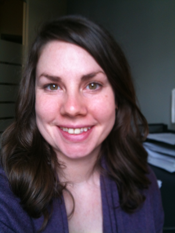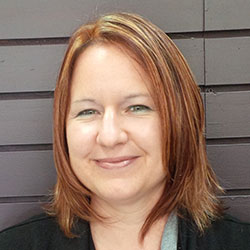- How did you learn about the program and what motivated you to enroll?
-
I learned of the Professional Specialization Certificate in Pop Health Data Analysis through a couple of sources, including the Canadian Evaluation Society and the BC Centre for Excellence in Women’s Health. One of the program postings included information about a CIHR funding opportunity for eligible students. After looking into the program details as well as the CIHR funding, I decided that it would be a good program for my professional development. I have a master’s in Public Health, and while taking the program, I worked for a non-profit social and health policy research organization where I could apply the skills I learned. One of the areas which I felt I could build on was the use of quantitative and administrative health data; this program was a perfect fit.
- Tell us about your course experience. What skills did you develop and which courses provided the greatest benefit to you?
-
The courses which provided the greatest benefit were also the ones where I developed my skills the most. Population Health and GIS (PHDA 03) and Epidemiological Statistics (PHDA 02) were both challenging courses but very informative. Prior to taking the program, I had zero knowledge or experience with GIS. The PHDA 03 course involved a steep learning curve and required a significant amount of time investment. However, by the end of the course, I found I had a basic understanding of how public health and geography intersect and the benefits of GIS applications to public health issues. I also have a basic understanding and use of the GIS software program ArcGIS, which I found very valuable. In addition, the PHDA 02 course was a great refresher for advanced statistics using sample data sets and applied examples.
- How have you been able to (or how do you plan to) apply your new skills in your work/research?
-
At the time of starting the certificate program, I had intended to apply the skills and knowledge I learned to my work on an evaluation of a health program in BC. However, I have recently re-located to Nova Scotia with my family. While I am not currently using the skills and knowledge I gained, I expect that I will use them in my future work.
- What do you think were the strengths of this program? Please provide examples.
-
For a program that is delivered completely online, each course was organized and delivered very well. Most of the instructors were very quick with their replies to questions from students. All of the courses used practical examples to explain the material which I found really helpful for understanding how to apply the concepts in practice. In the Working with Administrative Data (PHDA 01) course, the instructors were extremely helpful, and I found the 15 minute phone meeting near the start of the course really nice. It was so much easier to go through several questions/concerns at once on the phone with person rather than through several online posts.
The PHDA 03 course involved a lot of work, but was structured in a way that it was easy to work through each module. The instructor provided step by step instructions for each module about how to use ArcGIS. By the end of the course, I went from someone with zero experience in GIS to someone who can understand how to interpret maps, basic tools in ArcGIS, and how to apply GIS to public health issues.
I went into the program with few expectations, and wasn’t sure how challenging the courses would be. I was initially surprised, but then thankful, that all of the courses were very comparable to graduate level studies. Even though each course required a bit more work and time commitment than I initially planned for, I felt each of them challenged me and taught me new concepts and skills that I can take away and use immediately in my work.
- Would you recommend this program to others? If so, what recommendations/suggestions would you give those interested in applying to this program?
-
I would recommend this program to anyone working in the public health field and handling or interpreting data that is looking to update or acquire new skills. The students in my classes had various backgrounds, some with prior education or experience in public health, and some with limited education or experience but who are now working in the field. Even with the various student backgrounds, I felt the courses were appropriate for anyone at an introductory or intermediate level. The courses were of high quality and good value. For anyone planning to enroll in the program, while working full time, I would recommend taking only one course per semester. On average, I spent 10-12 hours each week on course readings, activities, online forums and assignments each week. The CIHR funding was also a significant factor in my decision to enroll and a great benefit to me. Without this funding I would have likely chosen a few of the courses I felt I needed and completed them over a longer period of time.
Overall I felt taking the courses and the certificate were worth it and I am confident that I will be able to use the skills and knowledge I learned in my work in the future.
- Any additional comments you would like to add?
-
Overall I enjoyed the courses I took (PHDA01, 02, 03 and 06). For the most part the instructors structured the course work and modules well.


